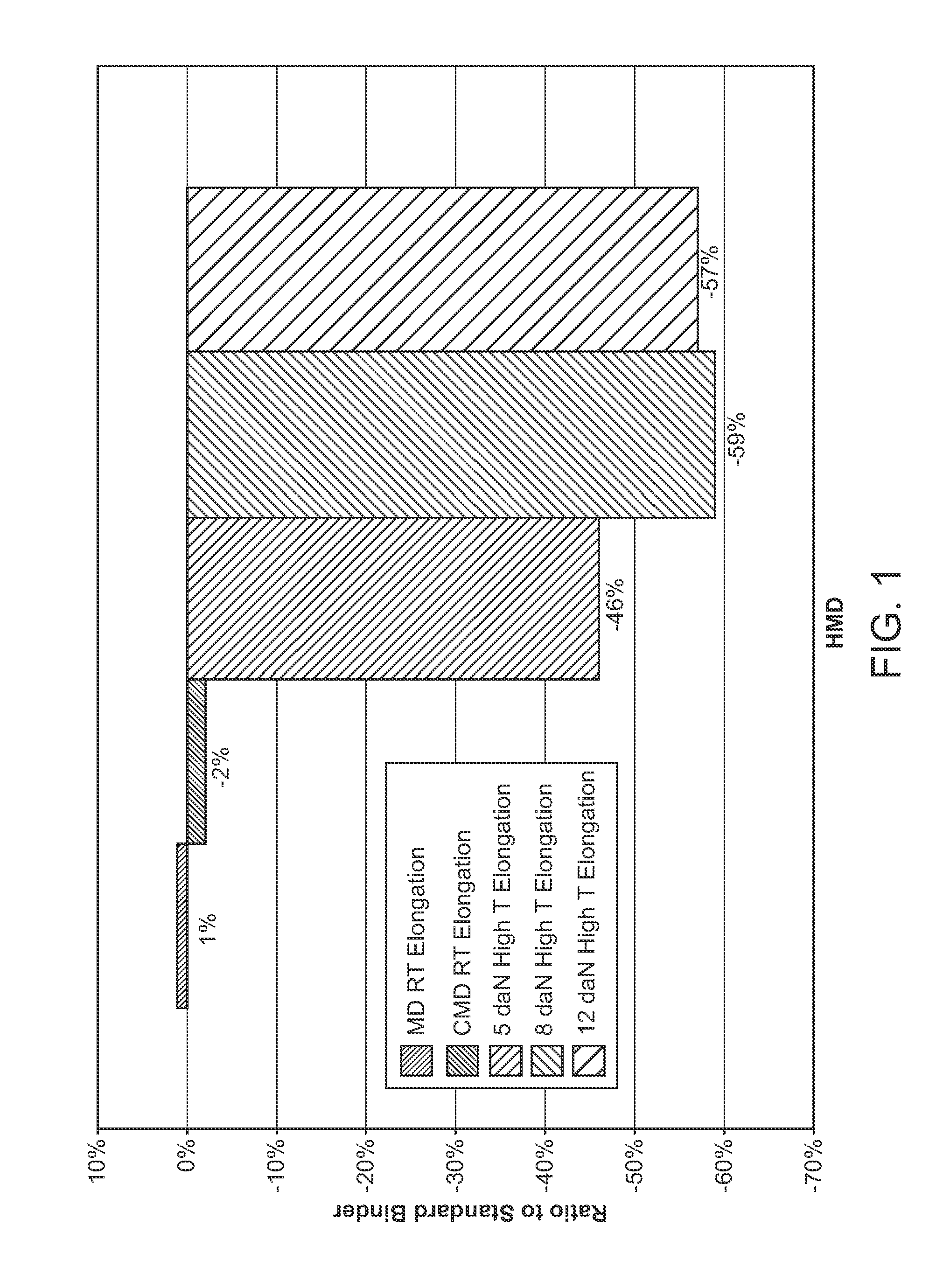Performance polymeric fiber webs
a technology of polymeric fibers and fibers, applied in the field of polymeric fiber webs, can solve the problems of placing demands on its construction
- Summary
- Abstract
- Description
- Claims
- Application Information
AI Technical Summary
Benefits of technology
Problems solved by technology
Method used
Image
Examples
example 1
[0042]To 42.8 g of solution of HM intermediate, anhydrous dextrose (alpha-D-glucose) and water was added. The mass of added water was chosen to be equal to that of the corresponding dextrose. The mass of dextrose (and corresponding water) used was 18 g, 36 g. 54 g, 72 g, 90 g, 108, 144, 180 g and 216 g. The various solutions were stirred at ambient temperature for 10 min. The solutions were applied as thin film on glass and A1 panel, dried in an oven at 100° C. for 5 min and cured at 200° C. for 20 min. Each film gave a cured brown polymer that was hard and insoluble in water and solvents.
example 2
[0043]To 52.8 g of solution of HPh intermediate, anhydrous dextrose and water was added. The mass of added water was chosen to be equal to that of the corresponding dextrose. The mass of dextrose (and corresponding water) used was 18 g, 36 g. 54 g, 72 g, 90 g, 108, 144, 180 g and 216 g. The various solutions were stirred at ambient temperature for 10 min. The solutions were applied as a thin film on glass and A1 panel, dried in an oven at 100° C. for 5 min and cured at 200° C. for 20 min. Each solution gave a cured brown polymer that was hard and insoluble in water and solvents.
example 3
[0044]To 53.6 g of solution of HT intermediate, anhydrous dextrose and water was added. The mass of added water was chosen to be equal to that of the corresponding dextrose. The mass of dextrose (and corresponding water) used was 18 g, 36 g. 54 g, 72 g, 90 g, 108, 144, 180 g and 216 g. The various solutions were stirred at ambient temperature for 10 min. The solutions were applied as a thin film on glass and A1 panel, dried in an oven at 100° C. for 5 min and cured at 200° C. for 20 min. Each solution gave a cured brown polymer that was hard and insoluble in water and solvents.
PUM
 Login to View More
Login to View More Abstract
Description
Claims
Application Information
 Login to View More
Login to View More - R&D
- Intellectual Property
- Life Sciences
- Materials
- Tech Scout
- Unparalleled Data Quality
- Higher Quality Content
- 60% Fewer Hallucinations
Browse by: Latest US Patents, China's latest patents, Technical Efficacy Thesaurus, Application Domain, Technology Topic, Popular Technical Reports.
© 2025 PatSnap. All rights reserved.Legal|Privacy policy|Modern Slavery Act Transparency Statement|Sitemap|About US| Contact US: help@patsnap.com

